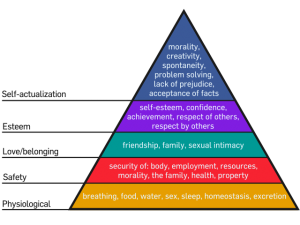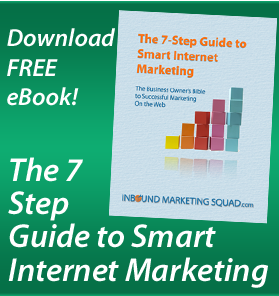As inbound marketers we’re submerged in the discipline of counting and analyzing click throughs, page visits, conversions, unique and repeat visitors, etc. And measuring that data is certainly important so we can improve what we’re marketing. To us, knowing how many times a specific visitor has come to our site, downloaded various pieces of information, read various blog posts and tweeted or liked what we’ve done, we assume helps tell us the degree to which they’ll be receptive to buying what we’re marketing.
Yet I can’t help but feel that we’re missing something important. We’ve certainly come a long way in being able to track and measure certain behaviors. But what we’re not tracking or able to measure, yet, are the intangibles — if someone shared what they read, how do we know that they liked it? Perhaps they thought what we wrote was totally lame, or useless and couldn’t wait to share a snarky guffaw over a really poor example with their networks? By the same token, perhaps they were madly in love with it but for whatever reason lacked the words to express it other than to say…”good article.”
The most elusive thing to measure are our feelings. And yet, it’s that emotional connection we’re all striving to create with our prospects and customers. Short of plugging into our brains à la Aldous Huxley’s Brave New World’s computer-human interface, how and what can we measure that will tell us definitively when we’ve struck that emotional chord and what that chord is?
Not everything that can be counted counts, and not everything that counts can be counted. — Albert Einstein
Because at the end of the day, what are we seeking? What really matters to us? One could argue it depends where on  Maslow’s Hierarchy of Needs we are. Are we struggling just to pay our rent and feed our families (survival)? Or are we reaching for that ultimate transformative state of self-actualization?
Maslow’s Hierarchy of Needs we are. Are we struggling just to pay our rent and feed our families (survival)? Or are we reaching for that ultimate transformative state of self-actualization?
That’s why I’m fascinated by our featured video today — Chip Conley’s TED Talk. He spent some time with the King of Bhutan and his leadership team to learn more about Bhutan’s Gross Happiness metric. Yes, indeed. You read that right. Bhutan doesn’t look at Gross Domestic Product (GDP). They focus on Gross Happiness believing that if the Bhutanese are happy, wealth becomes a by-product instead of a goal in itself.
They’ve actually figured out ways to measure this. Watch the video to learn more. It’s inspired me to think about how can we, as inbound marketers, learn more about measuring prospects’ and customers’ “gross happiness” with our services and products. And, how can we carry that earlier into actually measuring which feelings are driving their decisions to buy or not buy?
Got any ideas? Share them with us!







